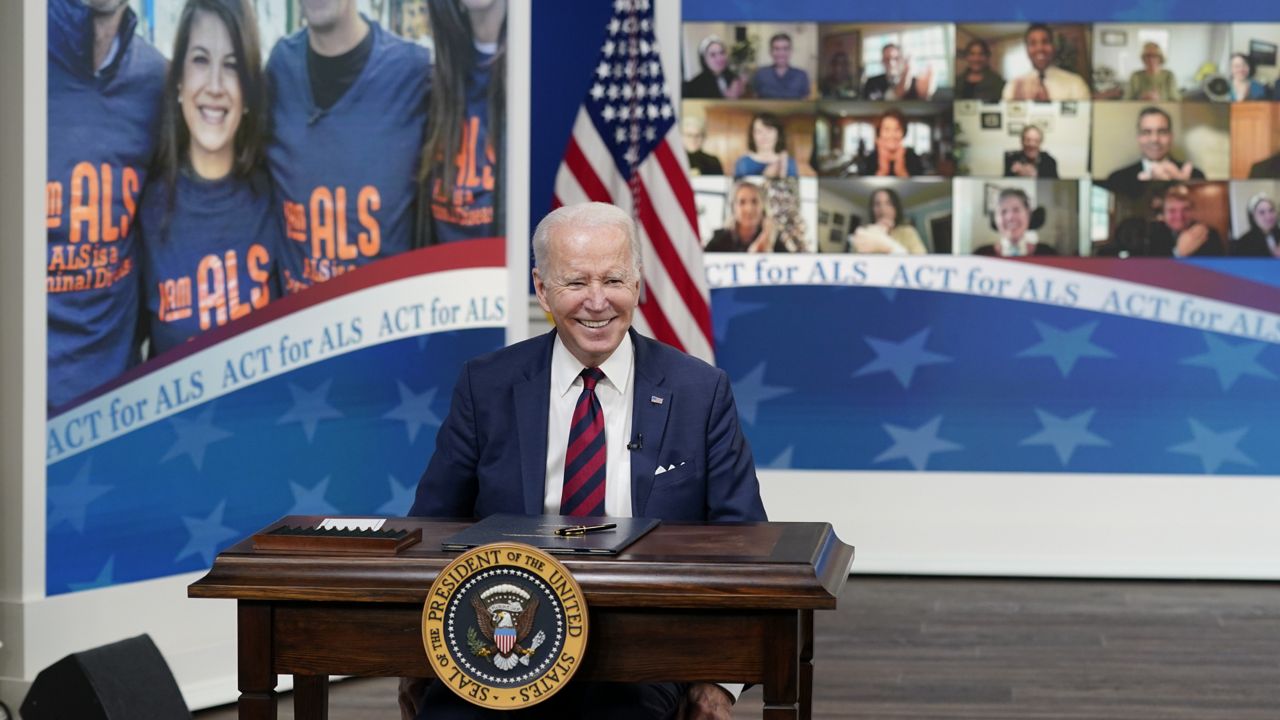President Joe Biden signed H.R. 3537, also known as the Accelerating Access to Critical Therapies for ALS Act, into law on Thursday, which aims to speed the production of treatments and cures for neurodegenerative diseases like amyotrophic lateral sclerosis – also known as ALS, or Lou Gehrig's disease.
“As we enter this Christmas and New Year, the bill I’m about to sign into law truly represents the spirit of the season, in my view,” Biden said to a group of activists and lawmakers, assembled virtually, from the White House. “The season of hope and light, goodness and grace, and the power of unity and everyday Americans doing extraordinary things.”
ALS is a disease that affects nerve cells in the brain and spinal cord, and almost always leads to weakened ability to perform motor functions like walking, talking, eating and breathing. While there is currently no cure for ALS, treatments can occasionally slow the progression of symptoms.
Still, individuals with ALS on average live three to five years after diagnosis.
The new law will invest $100 million annually for the next five years to fund three specific initiatives, the first of which orders the Department of Health and Human Services to fund scientific research for investigational ALS treatments for individuals who are “not otherwise eligible for clinical trials.”
The Food and Drug Administration will also establish grant programs to fund the research and development of drugs that either diagnose or treat ALS, as well as other neurodegenerative diseases.
The FDA is required to publish a five-year action plan for “fostering the development of drugs that improve or extend the lives of people living with rare neurodegenerative diseases,” per the bill’s text.
Finally, the bill establishes a first-of-its-kind public-private partnership led by the National Institutes of Health and the FDA to “work with academia and nonprofits in the private sector to speed the development and evaluation of therapies for ALS and other neurodegenerative diseases,” Biden said.
While ALS was discovered in the late 1800s, the disease became synonymous with Lou Gehrig when the beloved baseball player revealed his diagnosis in 1939; Gehrig died two years later at just 37 years old.
In the eight decades since, “no cure has been found, treatments are still limited, and the outcomes are still the same,” Biden noted Thursday.
The Accelerating Access to Critical Therapies for ALS Act was pushed through Congress with widely bipartisan support, which President Biden commended in his address on Thursday.
“Today, we're finally closer than ever to new treatments and hopefully, God willing, a cure,” Biden said. “And it’s because of the movement led by the patients and caregivers and members of Congress of both parties, many of whom are joining us today virtually.”
Biden thanked activists and lawmakers of both parties by name, saying Thursday’s bill signing ceremony was evidence of “democracy in action.”
“The people spoke, our elected leaders voted,” he added. “The president is about to sign a bill into law that's consequential about accelerating hope and giving patients a fighting chance.”



